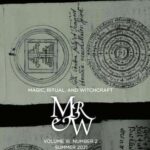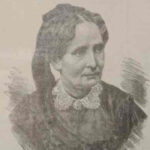Global Educational Outreach Program; Taube Philanthropies, the William K. Bowes Jr. Foundation, the Association of the Jewish Historical Inst. of Poland, the World Union of Jewish Studies, and the Austrian Science Fund ESPIRT project ESP120
Time: 25.-26.06.2024
Venue: POLIN Museum Warsaw
Proposals by: 15.01.2024
For the past few decades, flourishing gender studies have provided new heuristic tools, theoretical reflections, and methodological approaches that have also brought fruitful results in historical research. Cross- and intercategorial angles based on concepts such as intersectionality expanded conventional historiographical narratives and, thus, not least, contributed significantly to new findings in Jewish studies. Perspectives on Jewish history and culture drifted towards more open, mutual, and sensitive understandings of categorizing individuals and groups. The inclusion of gender helped to reflect on how encounters, exchanges, and diverse forms of togetherness unfolded in different historical pasts. This has particularly fostered microhistorical case studies that contributed to a more nuanced understanding of the everyday life of Jews in Central and Eastern Europe.
During the workshop, the organizers seek to discuss encounters between Jewish and non-Jewish men and women; perspectives on queerness, masculinity or femininity; sexualities; and aspects of distinct gendered Jewish history. Questions the organizers want to address include: In which perspectives on everyday life does gender prove to be a relevant category of analysis? Which intersectional aspects are relevant in interpreting frequent encounters between Jews and non-Jews? Which theoretical frames help us to sharpen our research on agency in daily working patterns? How did gendered affiliations frame daily encounters? How were diverse sexual identifications articulated, lived, and shared?
Moreover, with this workshop gathering scholars specializing in Jewish and non-Jewish history in Europe, the organizers seek to stimulate the discussion on the place of Jewish studies in the gendered history of the region and situate Jewish Studies in the broader academic landscape transformed by the gendered turn.
This workshop is the second in the envisioned series of meetings Continue reading

 Melammu Project. The Heritage of Mesopotamia and the Ancient Near East; Krzysztof Ulanowski, Zozan Tarhan, and Sebastian Fink
Melammu Project. The Heritage of Mesopotamia and the Ancient Near East; Krzysztof Ulanowski, Zozan Tarhan, and Sebastian Fink  The American Communist History journal; Tatsiana Shchurko and Denise Lynn
The American Communist History journal; Tatsiana Shchurko and Denise Lynn  Dokumentationsarchives des österreichischen Widerstandes (DÖW)
Dokumentationsarchives des österreichischen Widerstandes (DÖW)  mdw – Univ. für Musik und darstellende Kunst Wien
mdw – Univ. für Musik und darstellende Kunst Wien  Frauenmuseum Hittisau
Frauenmuseum Hittisau  Journal „Magic, Ritual, and Witchcraft“, Univ. of Pennsylvenia Press
Journal „Magic, Ritual, and Witchcraft“, Univ. of Pennsylvenia Press  Tanzquartier Wien – Centre for Contemporary Choreography and Performance
Tanzquartier Wien – Centre for Contemporary Choreography and Performance  Veranstaltungsreihe „Klassikaner! Die All-Stars der Wienbibliothek im Rathaus“
Veranstaltungsreihe „Klassikaner! Die All-Stars der Wienbibliothek im Rathaus“